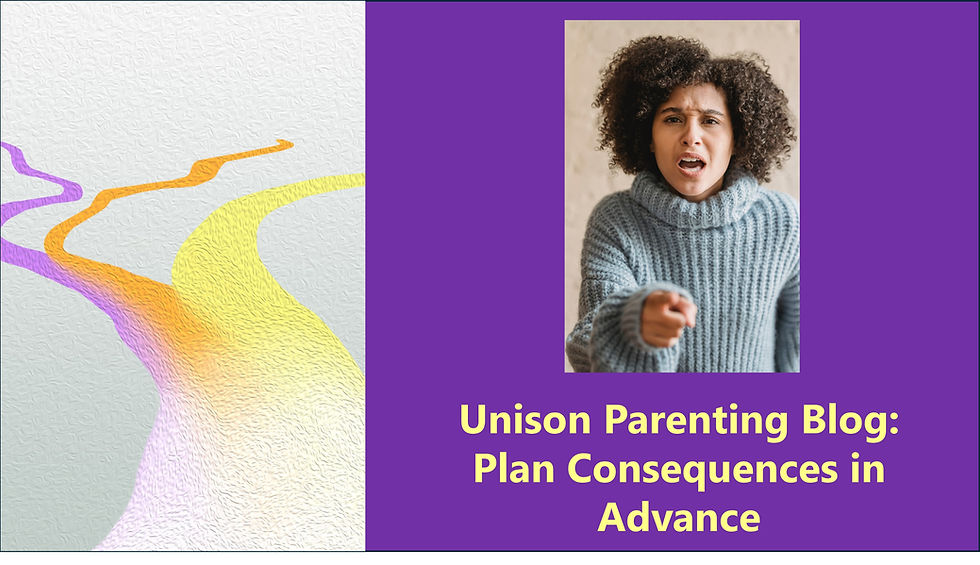Unison Parenting Blog: Plan Consequences in Advance
- cecil2748
- Aug 7
- 2 min read

A new parenting trend recommends the very opposite of what I recommend in Unison Parenting.
In a misguided attempt to enforce natural consequences on the child, parents are encouraged to essentially lash out at the child to control their behavior. Examples:
If your child bites someone, bite them, so they know how it feels.
If your child is annoying you, respond extremely so they will know they've crossed a line. For instance, push them into a pool or dump ice water on their head.
If they don't pick up their toys, throw the toys away with no chance of getting them back.
This is frustration-based parenting, heat-of-the-moment parenting, even abusive parenting. Such actions aren't based on united decision-making; a parent simply responds unilaterally, forcefully, and emotionally.
Unison Parenting recommends a calmer yet very effective approach. Parents plan consequences in advance; in the case of older children (age 8 on up), bring them into the plan to decide on consequences.
This approach implies that you have clearly, yet broadly, defined household rules. We used a Choices Chart where every choice began with the letter C, such as chores, cleanliness, courtesy, etc. If the child didn't pick up their toys, that was a cleanliness violation, with its defined consequence. If a child was rude or obnoxious, that fell under courtesy with a separate consequence.
This approach gives children a better sense of boundaries. They will learn details as parents encounter specific situations and teach the child where the boundary is.
Important: some natural consequences are fine. If a child fails to do their homework despite reminders and receives a zero grade, that's a great natural consequence. Don't fix the grade with the teacher; teach the child how to overcome the mistake. If you remind them to take a jacket, but they refuse and become cold, that too is a good natural consequence to experience (depending on harshness of temperature, of course).
I recommend parents to allow certain natural consequences to occur, as long as they are not going to cause long-term harm to the child. Many situations will not cause lasting damage.



Comments